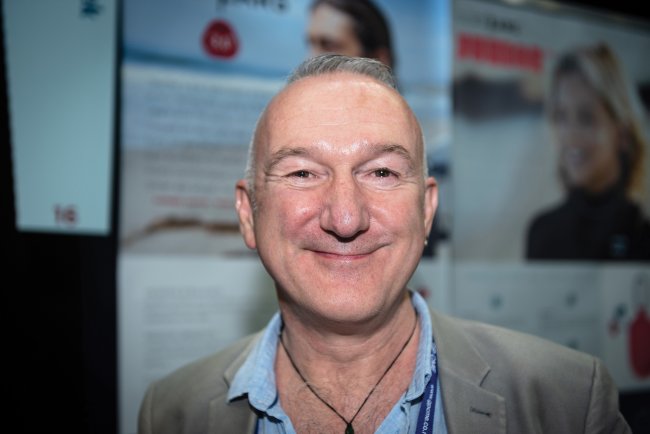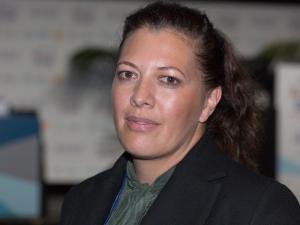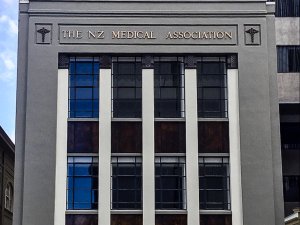Respiratory physician Lutz Beckert considers chronic obstructive pulmonary disease management, including the prevention of COPD, the importance of smoking cessation and pulmonary rehabilitation, and the lifesaving potential of addressing treatable traits. He also discusses the logic of inhaler therapy, moving from single therapy to dual and triple therapy when indicated, as well as other aspects of management
Thorn in their side – that’s GPA: Time for a new, independent advocate for doctors, starting with GPs
Thorn in their side – that’s GPA: Time for a new, independent advocate for doctors, starting with GPs

The loss of the NZMA, with its history of staunch advocacy, has cemented the idea of a new organisation to be the voice of GPs, writes its cofounder Buzz Burrell
"Le roi est mort, vive le roi!” One of the perks of penning an article is to have carte blanche to use quotations, then Google them and learn where they originated.
It seems the exclamation “The king is dead, long live the king!” was first broadcast when Charles VII seated himself on the freshly vacated throne of his predecessor, his father, Charles VI in 1422.
Timely, and without any intention to be insensitive to the passing of Queen Elizabeth II and the ascension of King Charles III, my choice of the 600-year-old proclamation was to anticipate that the New Zealand Medical Association will be reincarnated.
This time last year, doctors were proud of the incredible work the NZMA was doing. With fearless independence, it made more than 50 submissions a year on many relevant issues. The association had the ear of ministers, held the doctors’ Code of Ethics and the New Zealand Medical Journal, and had a seat at the World Medical Association, earning respect for all New Zealand doctors on the international stage.
The NZMA’s success was also its downfall, because it did this whether doctors in New Zealand chose to be members or not. And 14 out of 15 doctors chose not to do so.
It really is to the credit of my colleagues who tirelessly served the NZMA, whether in the office or on its councils or board, that it kept doing its mahi the way it did.
Recruiting new members was difficult because the conversation went like this:
NZMA: “Please join us. We advocate for you on issues relevant to your work, patients, and colleagues.”
Non-member: “If I don’t join, will you do the work anyway?”
NZMA: “Of course, but as a membership organisation we are at high risk of folding.”
Non-member: “Don’t be silly, you’ve been an institution since 1886. Good luck. You’re doing a great job. You’ll never fold.”
And while that unfortunate attitude prevailed, last year the NZMA folded.
What is a medical association? The American association doesn’t do itself proud with this promo, sounding rather like a Trump merchandise door-to-door salesman: “As a member, you are in the unique position to attend conventions, seminars, awards dinners, and other related events with like-minded professionals in the field.”
Britannica Online, in a less GOP (US Republican) way, informs that a medical association is a “professional organisation or learned society developed to promote high standards in medical education and practice, science, and ethics”. It adds: “The medical association also works to promote and protect the interests of its physician members.”
New Zealand has 17 medical colleges. As well, it has the General Practice Leaders Forum – members of which are General Practice NZ, General Practice Owners Association of Aotearoa NZ, NZ Nurses Organisation, RNZCGP and Hauora Taiwhenua.
There is the Association of Salaried Medical Specialists, Resident Doctors’ Association and Specialty Trainees of New Zealand. Let’s not forget the NZ Medical Students’ Association, Pasifika Medical Association, Te Ohu Rata o Aotearoa – Māori Medical Practitioners Association, Aviation Medical Society, New Zealand Cardiac Society, Doctors for Sexual Abuse Care, NZ Association of Musculoskeletal Medicine, NZ Dermatological Society, NZ Orthopaedic Association, NZ Pain Society, NZ Rheumatological Association, NZ Sexual Health Society, NZ Society of Anaesthetists, NZ Society of Gastroenterologists, numerous other medical societies and the likes of Sports Medicine New Zealand. (Apologies, I can guarantee I’ve missed some equally important institutions.)
It is reasonable to ask whether New Zealand needs another medical association.
Moreover, is the system just in need of a few tweaks that we can trust our elected politicians to coordinate?
A health reform, perhaps? After all (cue the next researched quote), as Thomas Bertram Lance first said in 1977, “If it ain’t broke, don’t fix it.”
But it is “broke” and it most certainly does need fixing. Doctors are overworked and underpaid, the wealthy privileged are served well and the less well-off, especially rural and Māori, are under-served. GPs feel neglected, largely tracing back to the decision in 1939 not to be salaried civil servants but private entrepreneurs. New Zealand is woefully short of GPs and, as a result, under-served patients are overwhelming secondary care.
Then there’s the fact Australians, in particular, pay GPs at least double New Zealand equivalents. For good measure, I’ll add in a perennial government attitude of apparently not respecting the difference between a doctor, and a nurse, pharmacist, physiotherapist, or other non-doctor health worker who can claim to do what doctors do better, sooner, more conveniently and now, cheaper.
And possibly noticing that after millions of dollars, we have a new letterhead and logo for an otherwise unchanged health system as a “fix” that just might not have fully hit the target.
I’m proposing here we have plenty of good reasons to complain, to listen and to champion better ideas.
With no disrespect to the organisations mentioned above, whatever noise of dissent they have sincerely made, the issues impeding our profession seem to be doing the opposite of going away.
So, who is there to effectively do that complaining for us?
Wouldn’t it be nice if GPs could belong to a group that:
- was not beholden to any society, guild, college, political party or club
- united the fragmented and disempowered collection of advocacy entities
- was not afraid to confront any government, minister, council, college, or authority, and
- could advocate for its doctor members with a mandate of unarguable credibility.
The GP4GP Facebook page has nearly 2000 members and many GPs have joined the Facebook group behind the idea of General Practitioners Aotearoa (GPA).
Those working towards GPA intend it to be the association the Government has not had as a thorn in its side in recent times.
A handful of us have been working hard in the past six months to establish this entity for GPs, with our goal in mind, the independence and mandate to fight for the issues that hitherto have been unaddressed, bypassed, ignored or glossed over.
GPA is soon to be formally incorporated as a society, and is preparing to hold its first elections and start the hard work of turning the concept into reality.
It won’t be the reborn NZMA we need but, who knows? With other leading doctors’ organisations, we may have the potential for a necessary pan-professional phoenix to ripen, hatch and ascend to the throne vacated by the NZMA.
We lost our 127-year-old medical association mainly because too few of us joined up. If we let this happen again, we will only have ourselves to blame for the impotence that comes with the absence of a crucial voice.
“Kia whakatōmuri te haere whakamua – I walk backwards into the future with my eyes fixed on my past.”
I look forward to General Practitioners Aotearoa playing a major role in the health sector.
Buzz Burrell is a specialist GP and owner of Renwick Medical Centre in Marlborough, a pain Fellow in Auckland, a former NZMA board member, and a co-founder of General Practitioners Aotearoa
We're publishing this article as a FREE READ so it is FREE to read and EASY to share more widely. Please support us and the hard work of our journalists by clicking here and subscribing to our publication and website








![Barbara Fountain, editor of New Zealand Doctor Rata Aotearoa, and Paul Hutchison, GP and senior medical clinician at Tāmaki Health [Image: Simon Maude]](/sites/default/files/styles/thumbnail_cropped_100/public/2025-03/Barbara%20Fountain%2C%20editor%20of%20New%20Zealand%20Doctor%20Rata%20Aotearoa%2C%20and%20Paul%20Hutchison%2C%20GP%20and%20senior%20medical%20clinician%20at%20T%C4%81maki%20Health%20CR%20Simon%20Maude.jpg?itok=-HbQ1EYA)
![Lori Peters, NP and advanced health improvement practitioner at Mahitahi Hauora, and Jasper Nacilla, NP at The Terrace Medical Centre in Wellington [Image: Simon Maude]](/sites/default/files/styles/thumbnail_cropped_100/public/2025-03/2.%20Lori%20Peters%2C%20NP%20and%20advanced%20HIP%20at%20Mahitahi%20Hauora%2C%20and%20Jasper%20Nacilla%2C%20NP%20at%20The%20Terrace%20Medical%20Centre%20in%20Wellington%20CR%20Simon%20Maude.jpg?itok=sUfbsSF1)
![Ministry of Social Development health and disability coordinator Liz Williams, regional health advisors Mary Mojel and Larah Takarangi, and health and disability coordinators Rebecca Staunton and Myint Than Htut [Image: Simon Maude]](/sites/default/files/styles/thumbnail_cropped_100/public/2025-03/3.%20Ministry%20of%20Social%20Development%27s%20Liz%20Williams%2C%20Mary%20Mojel%2C%20Larah%20Takarangi%2C%20Rebecca%20Staunton%20and%20Myint%20Than%20Htut%20CR%20Simon%20Maude.jpg?itok=9ceOujzC)
![Locum GP Helen Fisher, with Te Kuiti Medical Centre NP Bridget Woodney [Image: Simon Maude]](/sites/default/files/styles/thumbnail_cropped_100/public/2025-03/4.%20Locum%20GP%20Helen%20Fisher%2C%20with%20Te%20Kuiti%20Medical%20Centre%20NP%20Bridget%20Woodney%20CR%20Simon%20Maude.jpg?itok=TJeODetm)
![Ruby Faulkner, GPEP2, with David Small, GPEP3 from The Doctors Greenmeadows in Napier [Image: Simon Maude]](/sites/default/files/styles/thumbnail_cropped_100/public/2025-03/5.%20Ruby%20Faulkner%2C%20GPEP2%2C%20with%20David%20Small%2C%20GPEP3%20from%20The%20Doctors%20Greenmeadows%20in%20Napier%20CR%20Simon%20Maude.jpg?itok=B0u4wsIs)
![Rochelle Langton and Libby Thomas, marketing advisors at the Medical Protection Society [Image: Simon Maude]](/sites/default/files/styles/thumbnail_cropped_100/public/2025-03/6.%20Rochelle%20Langton%20and%20Libby%20Thomas%2C%20marketing%20advisors%20at%20the%20Medical%20Protection%20Society%20CR%20Simon%20Maude.jpg?itok=r52_Cf74)
![Specialist GP Lucy Gibberd, medical advisor at MPS, and Zara Bolam, urgent-care specialist at The Nest Health Centre in Inglewood [Image: Simon Maude]](/sites/default/files/styles/thumbnail_cropped_100/public/2025-03/7.%20Specialist%20GP%20Lucy%20Gibberd%2C%20medical%20advisor%20at%20MPS%2C%20and%20Zara%20Bolam%2C%20urgent-care%20specialist%20at%20The%20Nest%20Health%20Centre%20in%20Inglewood%20CR%20Simon%20Maude.jpg?itok=z8eVoBU3)
![Olivia Blackmore and Trudee Sharp, NPs at Gore Health Centre, and Gaylene Hastie, NP at Queenstown Medical Centre [Image: Simon Maude]](/sites/default/files/styles/thumbnail_cropped_100/public/2025-03/8.%20Olivia%20Blackmore%20and%20Trudee%20Sharp%2C%20NPs%20at%20Gore%20Health%20Centre%2C%20and%20Gaylene%20Hastie%2C%20NP%20at%20Queenstown%20Medical%20Centre%20CR%20Simon%20Maude.jpg?itok=Z6u9d0XH)
![Mary Toloa, specialist GP at Porirua and Union Community Health Service in Wellington, Mara Coler, clinical pharmacist at Tū Ora Compass Health, and Bhavna Mistry, specialist GP at Porirua and Union Community Health Service [Image: Simon Maude]](/sites/default/files/styles/thumbnail_cropped_100/public/2025-03/9.%20Mary%20Toloa%2C%20Porirua%20and%20Union%20Community%20Health%20Service%20in%20Wellington%2C%20Mara%20Coler%2C%20T%C5%AB%20Ora%20Compass%20Health%2C%20and%20Bhavna%20Mistry%2C%20PUCHS%20CR%20Simon%20Maude.jpg?itok=kpChr0cc)